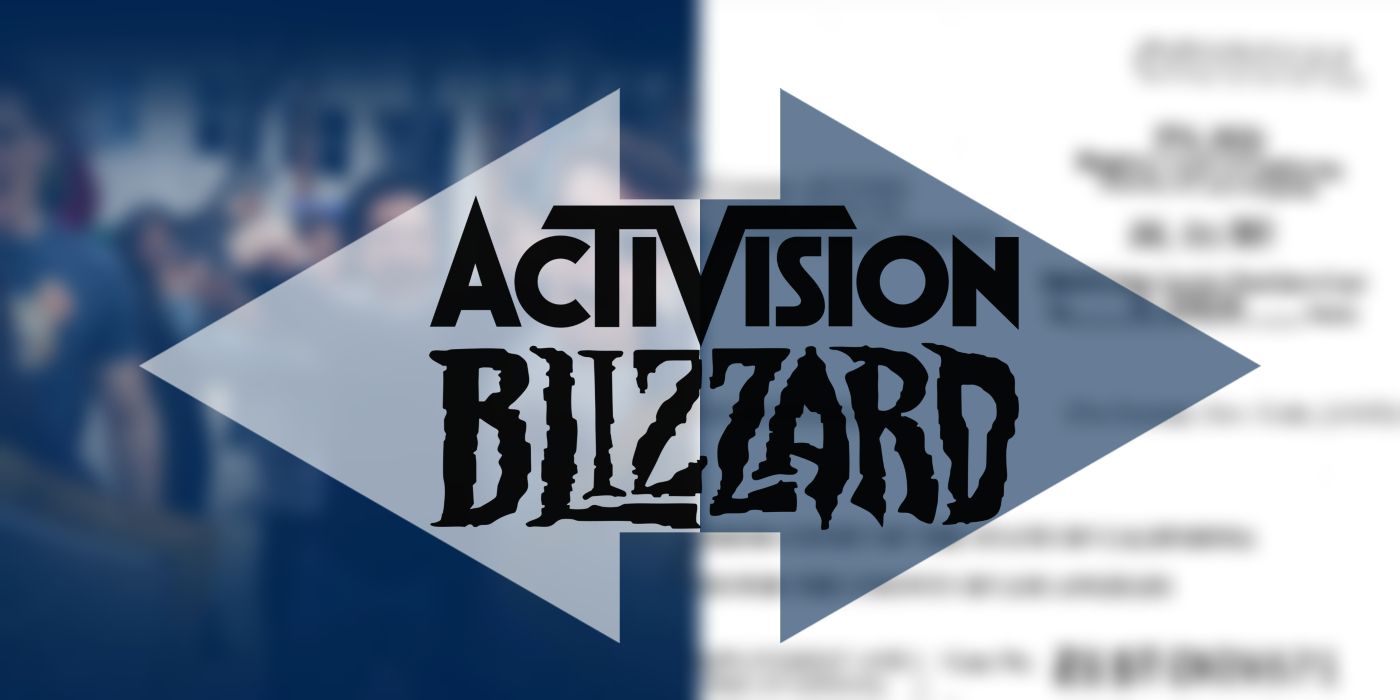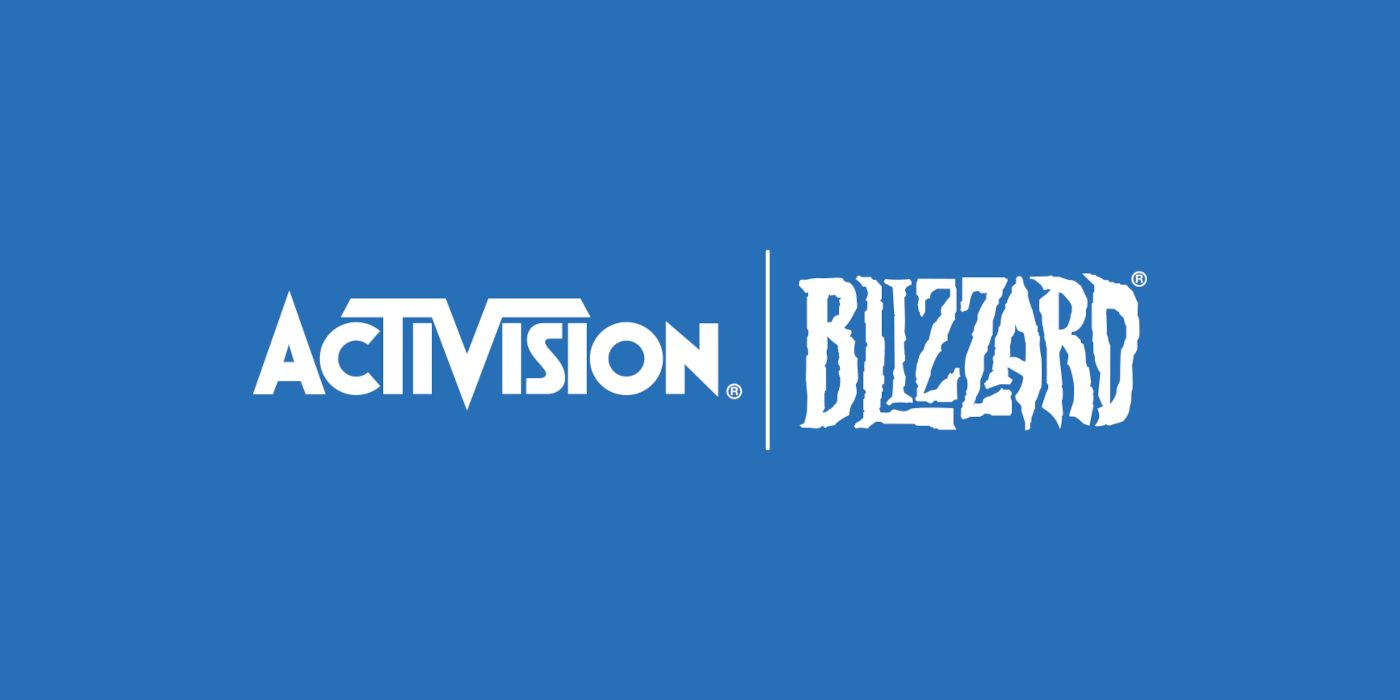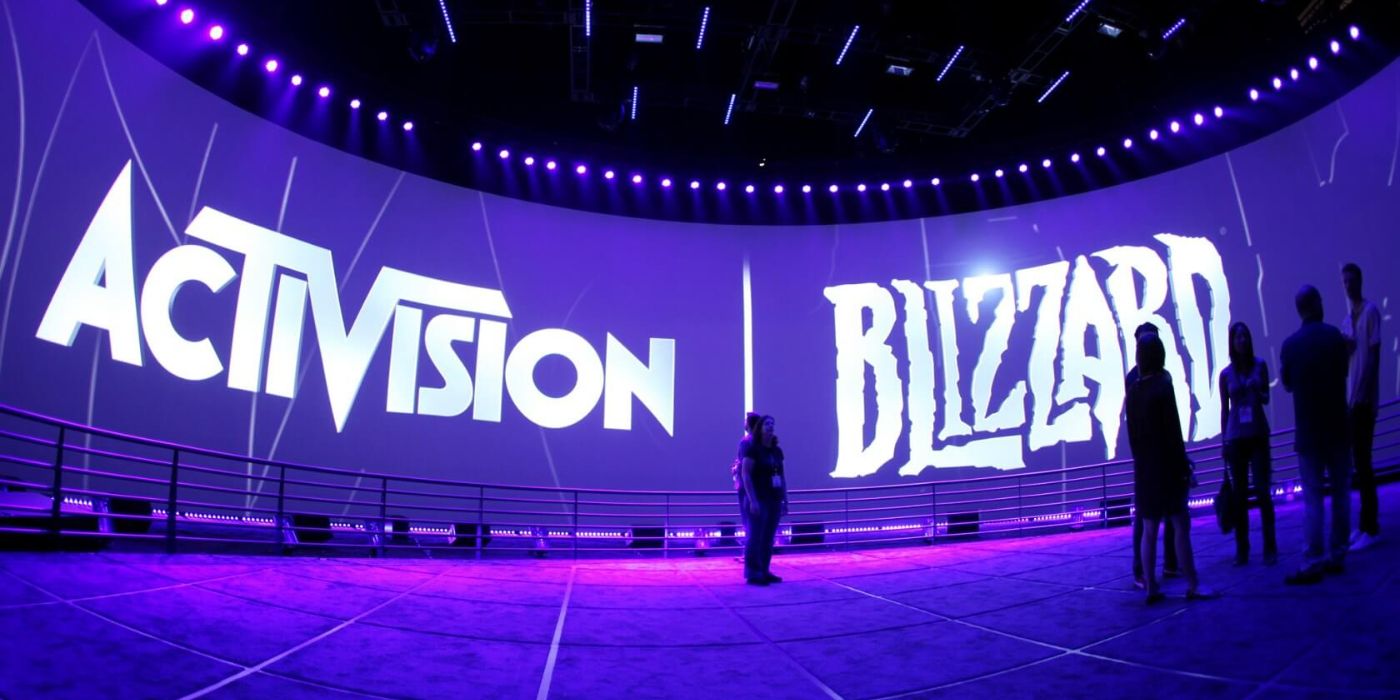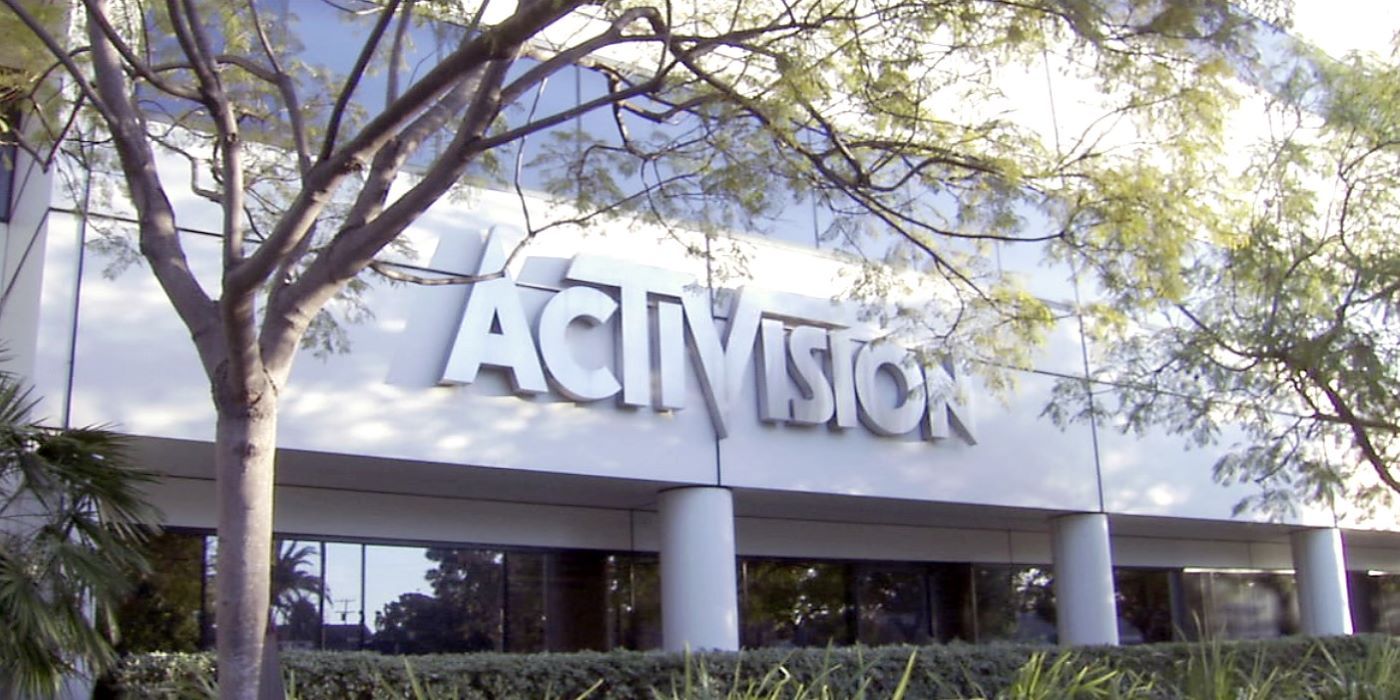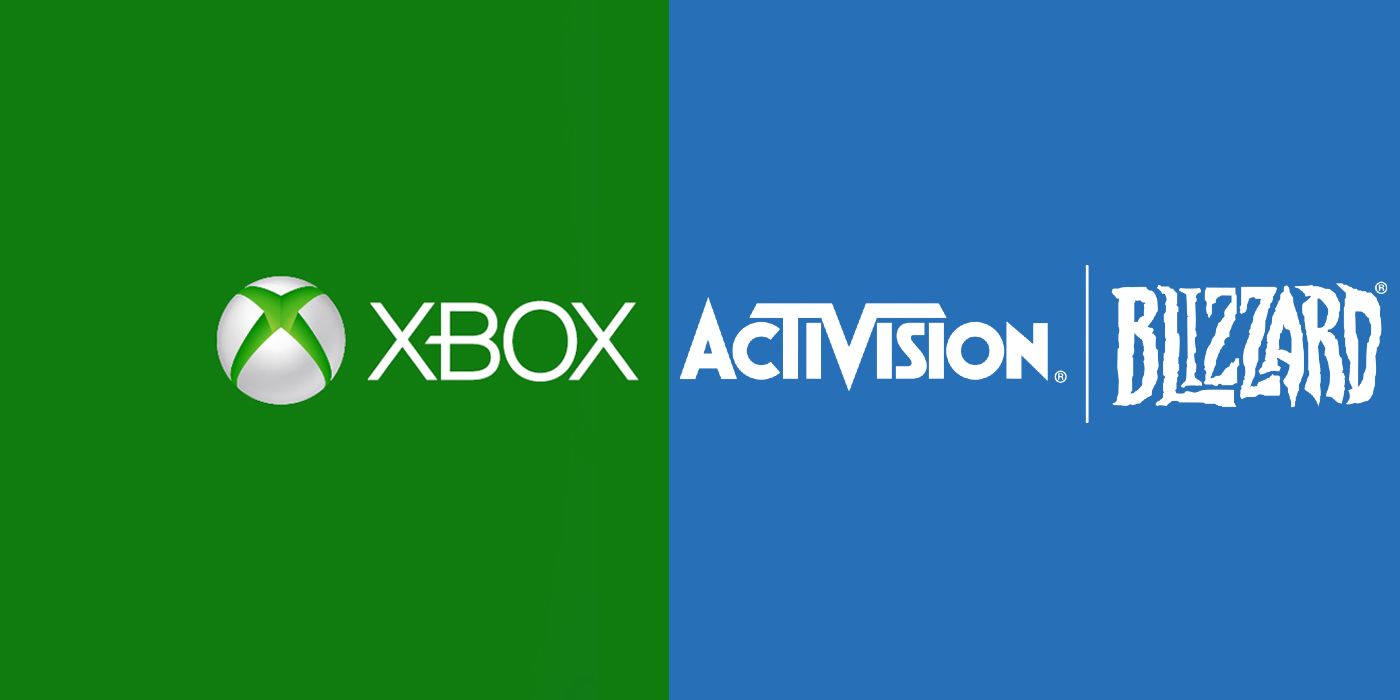Read update
- Microsoft Wins Ruling Against FTC In Activision Blizzard Deal
Content warning: The following article contains references to rape, suicide, verbal abuse, physical abuse, sexual abuse, and harassment.
UPDATE: 2023/07/11 10:40 EST BY KYLE GRATTON
Microsoft Wins Ruling Against FTC In Activision Blizzard Deal
A California judge has ruled against the Federal Trade Commission's preliminary injunction of Microsoft's acquisition of developer and publisher Activision Blizzard. Microsoft winning the legal dispute is a key step in the record-breaking acquisition, though the company still faces opposition from the Competition and Markets Authority in the United Kingdom. The FTC will also have a chance to appeal Judge Corley's 53-page decision.
The original harassment and discrimination lawsuit filed against Activision Blizzard has made predictably slow progress. Major litigation of any kind takes its time, offering the plaintiffs and defendants ample opportunity for pre-trial mediation and out of court settlement. Since the time of the lawsuit filed by California’s Department of Fair Employment and Housing (DFEH), a second lawsuit was filed by the US Equal Employment Opportunity Commission (EEOC) that promptly settled on the same day for $18 million. Activision Blizzard employees have pushed for unionization and faced an uphill battle due to the company’s retention of a reputed “union-busting” law firm. Microsoft recently purchased the company for $68.7 billion despite the pending litigation against Activision Blizzard, adding to the complications and controversies surrounding the high-profile game developer.
The state of California’s Department of Fair Employment and Housing filed a lawsuit against video game publisher Activision Blizzard Inc. on July 20, 2021. The suit, which named specific Activision Blizzard employees like Alex Afrasiabi, the former creative director of World of Warcraft, alleged that the company had "fostered a pervasive 'frat boy' workplace culture" that is "a breeding ground for harassment and discrimination against women." These accusations were the result of more than two years of investigation by the DFEH, which, according to the suit, "found evidence that Defendants discriminated against female employees in terms and conditions of employment, including compensation, assignment, promotion, termination, constructive discharge, and retaliation," as well as evidence, "that female employees were subject to sexual harassment." The company responded, claiming the lawsuit included, "distorted, and in many cases false, descriptions of Blizzard’s past."
The introduction of the DFEH suit against Activision Blizzard provided an in-depth summary not only of the grounds for the suit but of the gaming industry in general, noting, "Sexism has plagued the male-dominated industry for decades, and increasingly so in recent years," despite the fact that, "Women and girls now make up almost half of the gamers in America." The suit noted Activision Blizzard has roughly 9,500 employees, but only about 20% are women.
Many specific incidents and behavior patterns were highlighted in the DHEF lawsuit. These include the case of a female employee with highly rated performance reviews who "generated significantly more revenue in her marketing campaigns than her male counterpart" who was reportedly denied equal pay and passed over for promotion. Another female employee was allegedly told "they could not risk promoting her as she might get pregnant and like being a mom too much" after she assumed some of the responsibilities of a manager and asked her male supervisor about being paid fairly for that work. The lawsuit also alleged that a female employee "committed suicide while on a company trip due to a sexual relationship that she had been having with her male supervisor."
Another Agency Sued Activision Blizzard Shortly After, But Settled Immediately
About two months after this first filing, on September 27, 2021, the US Equal Employment Opportunity Commission also filed a lawsuit against Activision Blizzard. The EEOC suit provided far less elaboration in its broad claims, alleging the developer was responsible for, “1. Subjecting female employees to sex-based discrimination, including harassment, based on their gender. 2. Retaliating against female employees for complaining about sex-based discrimination, based on their gender. 3. Paying female employees less than male employees, based on their gender.” In an eyebrow-raising move, this lawsuit settled on the same day it was filed.
As reported by NPR, the settlement of the EEOC lawsuit involved Activision Blizzard creating an $18 million fund to be distributed among eligible parties who suffered discrimination from the company. Notably, as with any pre-trial settlement, the resolution is not, legally, an admission of wrongdoing by Activision Blizzard, and the $18 million fund is not considered a “penalty.” Out of court settlements allow the defendant, Activision Blizzard in this case, to avoid legal liability. These settlements can be presented as a cost-saving measure, weighing potential litigation costs against those involved in the settlement, rather than as admitting to any wrongdoing.
The release of liability associated with the EEOC settlement caused DFEH to challenge the settlement. Though the settlement includes specific methods by which potentially wronged employees can obtain compensation from the fund, and other mandated requirements such as sexual harassment training seminars, its release of liability could undermine the State-level suit against the company, according to the DFEH. The California Department of Fair Employment and Housing also expressed concerns that Activision Blizzard might use the release of liability terms of the Federal-level settlement as justification for destroying evidence that would be relevant to California’s lawsuit.
California Alleges The Activision Blizzard Settlement Undermines Their Case
Other concerns with the EEOC settlement include the provisions for undistributed funds from the $18 million. The excess funds are required to be divided between “charitable organizations whose mission involves advancing women in the video game and technology industries” and a “Diversity and Inclusion Fund” to be managed by Activision Blizzard. The notion of the very same company accused of fostering a toxic culture being given a say in how to use $18 million to repair their own past mistakes does not sit well with many employees. The figure itself that resolved the one-day long lawsuit also comes across as something of a bargain to many - a company valued at close to $70 billion paying $18 million to avoid a publicized trial with the accusations brought before the court, and a potential assessment of legal liability against the company for its practices.
United States District Judge Dale S. Fisher ruled against the DFEH on their proposed intervention to the EEOC settlement, according to Bloomberg Law. In part, the ruling seems to be aimed at avoiding precedent setting that might allow State agencies to freely challenge other settlements in the future, noting, “DFEH’s argument would allow it to potentially intervene in almost any employment action in California.” Fisher dismissed DFEH’s concerns for evidence preservation, calling this “at best speculative.” The DFEH has recently filed an appeal to the Judge’s decision, reiterating their concerns that the EEOC settlement undermines the ongoing DFEH lawsuit.
Activision Blizzard made its own attempt at an appeal regarding the DFEH lawsuit with the aid of the EEOC itself, the Washington Post reported, further calling the one-day EEOC settlement into question by adding governmental agency in-fighting into the mix. After the DFEH challenged the EEOC settlement, the EEOC claimed two of the DFEH attorneys involved in the case had previously helped direct the EEOC’s investigation into Activision Blizzard. The EEOC presented this as an ethical concern. Activision Blizzard filed a motion to stay the DHEF lawsuit due to this alleged ethical misconduct. Court docket records show a notice of withdrawal of counsel was filed on December 23, 2021, by the DHEF, and a notice of change of handling attorney on January 25, 2022, likely changing the DHEF's handling plaintiff attorneys in response to Activision Blizzard's appeal.
Activision Blizzard Has Been Accused Of Shredding Documents & Union Busting
While the bizarrely rapid and low-cost EEOC settlement, and its related ripple effects, have delayed the DHEF lawsuit for the past several months, the company's employees have not been waiting idly for the legal system to resolve their issues. Activision Blizzard employees penned a letter expressing support for the DFEH lawsuit, organized walkouts and protests, and have made attempts at unionizing. The company responded by retaining a known “union busting” law firm, WilmerHale. WilmerHale is the same firm "helping Amazon keep its workers from unionizing," according to Kotaku, and the WilmerHale website advertises services that include "advising on union awareness and avoidance." The Communications Workers of America union filed unfair labor practice charges against Activision Blizzard, arguing that the game publisher was threatening and punishing employees for speaking up about their experiences and actively working to prevent organization efforts.
The DFEH expanded its suit and noted interference and evidence destruction purportedly conducted by Activision Blizzard. As reported by Axios, the California DFEH expanded the lawsuit against Activision Blizzard to include temporary workers, alongside female full-time employees, among its claimants. The agency also alleged Activision Blizzard has shredded documents and interfered with its investigation: "Through NDAs, requiring employees to speak with the company ahead of contacting the DFEH, and its involvement with WilmerHale," according to Axios, and the DFEH said "documents related to investigations and complaints were shredded by [Activision Blizzard] human resource personnel." An Activision Blizzard spokesperson denied this claim to Axios and said it has "complied with every proper request in support of [the DFEH's] review."
In August 2021 Blizzard president J. Allen Brack stepped down from the position, replaced by co-presidents Jen Oneal and Mike Ybarra. In a brief message to the community, Brack said he was confident Oneal and Ybarra "will accelerate the pace of change" at the company. Though Brack stepped down, Activision Blizzard CEO Bobby Kotick remains in his position. A Wall Street Journal report claimed Kotick was aware of the company’s issues as far back as 2018, when a female employee informed Kotick she had been sexually assaulted by a male supervisor over the course of two years. Kotick took no action, and subsequently the employee threatened a lawsuit against Activision Blizzard. Like the EEOC lawsuit, that matter was settled out of court, and Kotick failed to inform the company’s board of directors about the assault, or the settlement, according to the Wall Street Journal report. Employees staged another walkout in response to the news about Kotick, requesting his termination.
Lawsuits Could Have Impacted The Purchase Price For Activision Blizzard
Other unflattering stories were reported about Kotick, including an incident where he reportedly threatened to have a female employee “killed” in a voice mail. Shortly after the Wall Street Journal report’s release in November 2021, Microsoft Gaming CEO Phil Spencer said he was “disturbed and deeply troubled,” adding that Microsoft was “evaluating all aspects of our relationship with Activision Blizzard.” This “evaluation” evidently resulted in Microsoft purchasing Activision Blizzard in January 2022 for $68.7 billion. The purchase is not expected to close until July 2023. Activision Blizzard will remain independent until that time, and Kotick remains in the position of CEO.
Microsoft’s purchase of Activision Blizzard does not impact the lawsuit at present, though the lingering liability case could have impacted the company’s sale price. It is unknown whether Microsoft will remove Kotick from his position once the purchase closes in 2023, assuming he does not step down before that time. It is also unclear if the DFEH lawsuit that first brought attention to Activision Blizzard’s alleged toxic culture will be resolved by the time the company becomes one of Microsoft’s gaming studios.
Activision Lawsuit Settled For Extremely Low Amount
March 29, 2022: The US Equal Employment Opportunity Commission's sexual harassment lawsuit against Activision Blizzard has officially been settled for $18 million.
Activision Appoints Kristen Hines As Chief Diversity, Equity, & Inclusion Officer
April 11, 2022: Activision Blizzard has appointed Kristen Hines as its new Chief Diversity, Equity, and Inclusion Officer, effective Monday, April 25. Hines said in a statement:
I’m excited to join a company that is prioritizing its commitment to DEI and making progress on the ambitious goals it has set for itself. In an industry with historical underrepresentation, I’m looking forward to leading the company’s efforts to further build a workplace that values transparency, equity, and inclusivity. Gaming has amazing potential to connect communities around the world and showcase heroes from all backgrounds. I am looking forward to playing a part in expanding the landscape of talent who brings these compelling experiences to a broad base of players.
Sources: NPR, Bloomberg Law, Washington Post, Kotaku, WilmerHale, Communication Workers of America, Axios, The Wall Street Journal

